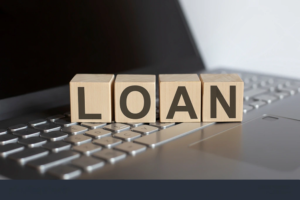Easiest loans to get approved for your start up business

Starting a business is a huge undertaking, and one of the biggest challenges that most entrepreneurs face is securing the necessary funds to get their businesses up and running.
While there are a number of options available for obtaining funding, not all of them are easy to access, particularly if you have a limited credit history or a less-than-perfect credit score.
Fortunately, there are still several types of business loans that are relatively easy to get approved for, even if you are just starting out.
1. Personal Loans
One of the easiest types of loans to obtain is a personal loan. These loans are typically unsecured, meaning that you do not have to put up collateral to secure them.
Personal loans are also relatively easy to apply for and can often be obtained quickly, which makes them an ideal option for entrepreneurs who need cash quickly to get their businesses up and running.
The downside to personal loans, however, is that they can often come with high interest rates, particularly if you have a less-than-perfect credit score.
Additionally, because these loans are unsecured, lenders may be hesitant to lend large amounts of money to borrowers who have not established a strong credit history.
2. Business Credit Cards
Another option for obtaining start-up loans is to apply for a business credit card. These cards work much like personal credit cards, but they are specifically designed for small business owners.
Business credit cards can be a great way to finance your startup because they offer a lot of flexibility and can be used to make purchases, pay bills, and cover unexpected expenses.
In addition, many business credit cards offer rewards programs that can help you save money on future purchases. The downside to business credit cards, however, is that they often come with high interest rates, and if you do not pay your balance off in full each month, you could end up accruing a significant amount of debt.
3. Microloans
Another option for start-up business loans is to apply for a microloan. Microloans are small, short-term loans that are typically offered by nonprofit organizations or community development financial institutions (CDFIs).
These loans are designed to help small businesses get off the ground and can be a great option for entrepreneurs who need a relatively small amount of funding.
The upside to microloans is that they often come with lower interest rates than traditional loans, and the application process is usually less stringent.
However, because these loans are generally smaller than other types of loans, they may not provide enough funding to cover all of your startup costs.
4. Peer-to-Peer Loans
Peer-to-peer (P2P) lending is a relatively new form of business financing that has become increasingly popular in recent years. P2P loans are funded by individual investors who are willing to lend money to borrowers.
The loans are typically unsecured, and the interest rates can vary widely depending on the borrower’s credit history and other factors.
The upside to P2P loans is that they can be relatively easy to obtain, and the application process is usually quick and straightforward.
Additionally, because the loans are funded by individual investors, borrowers may be able to obtain better interest rates than they would through traditional lenders.
5. Invoice Financing
If your startup is already generating revenue, you may be able to obtain financing through invoice financing. This type of financing allows you to sell your outstanding invoices to a lender in exchange for immediate cash. The lender then collects payment from your customers when the invoices are due.
The upside to invoice financing is that it allows you to obtain cash quickly without taking on additional debt.
However, the downside is that the fees associated with this type of financing can be high, and if your customers do not pay their invoices on time, you could be left with additional debt.
6. Equipment Financing
If your business requires specialized equipment, you may be able to obtain financing through equipment financing. This type of loan is specifically designed to help you purchase the equipment you need to get your business up and running.
The equipment itself serves as collateral, so lenders may be more willing to lend to borrowers with limited credit history or a lower credit score.
The downside to equipment financing is that it may only cover a portion of your overall startup costs.
Additionally, if you default on the loan, the lender may seize the equipment, which could be detrimental to your business.
7. Crowdfunding
Crowdfunding is a relatively new type of financing that has become increasingly popular in recent years.
This approach involves raising money from a large group of people, usually through an online platform.
Crowdfunding can be an effective way to raise funds quickly and can also help to build a community of supporters around your business.
The upside to crowdfunding is that it does not require you to take on debt or give up equity in your business.
However, the downside is that there is no guarantee that you will be able to raise the amount of money you need, and you may be required to offer rewards or other incentives to attract investors.
8. SBA Loans
SBA loans are loans that are backed by the Small Business Administration (SBA). These loans are designed to help small businesses obtain financing and are often easier to obtain than traditional loans.
SBA loans may be used to fund a wide range of business needs, including working capital, equipment purchases, and real estate.
The upside to SBA loans is that they often come with more favorable terms than traditional loans, including longer repayment periods and lower interest rates. However, the application process can be lengthy and may require a significant amount of documentation.
9. Personal Lines of Credit
A personal line of credit is a type of loan that allows you to borrow money as needed, up to a predetermined credit limit.
This type of loan can be a good option for entrepreneurs who need flexibility in their funding, as it allows them to borrow only what they need when they need it.
The downside to personal lines of credit is that they can come with high interest rates, and lenders may require a strong credit history or a high credit score to qualify.
Conclusion
Starting a business is never easy, and obtaining financing can be one of the biggestchallenges that entrepreneurs face.
However, there are several types of loans that are relatively easy to get approved for, even if you are just starting out.
Personal loans, business credit cards, microloans, peer-to-peer loans, and invoice financing are all potential options for securing funding for your startup.
When considering which type of loan to pursue, it’s important to carefully evaluate the terms and fees associated with each option.
You should also consider your business’s unique needs and goals, as well as your personal credit history and financial situation.
In addition to these loan options, there are several other strategies you can use to finance your startup, including crowdfunding, grants, and angel investors.
Each of these options has its own set of advantages and disadvantages, and it’s important to carefully evaluate each one before making a decision.
Ultimately, the key to successfully financing your startup is to be proactive and persistent. Don’t be afraid to explore multiple options and to ask for help when you need it.
With the right approach and a little bit of luck, you can secure the funding you need to turn your entrepreneurial dreams into a reality.




